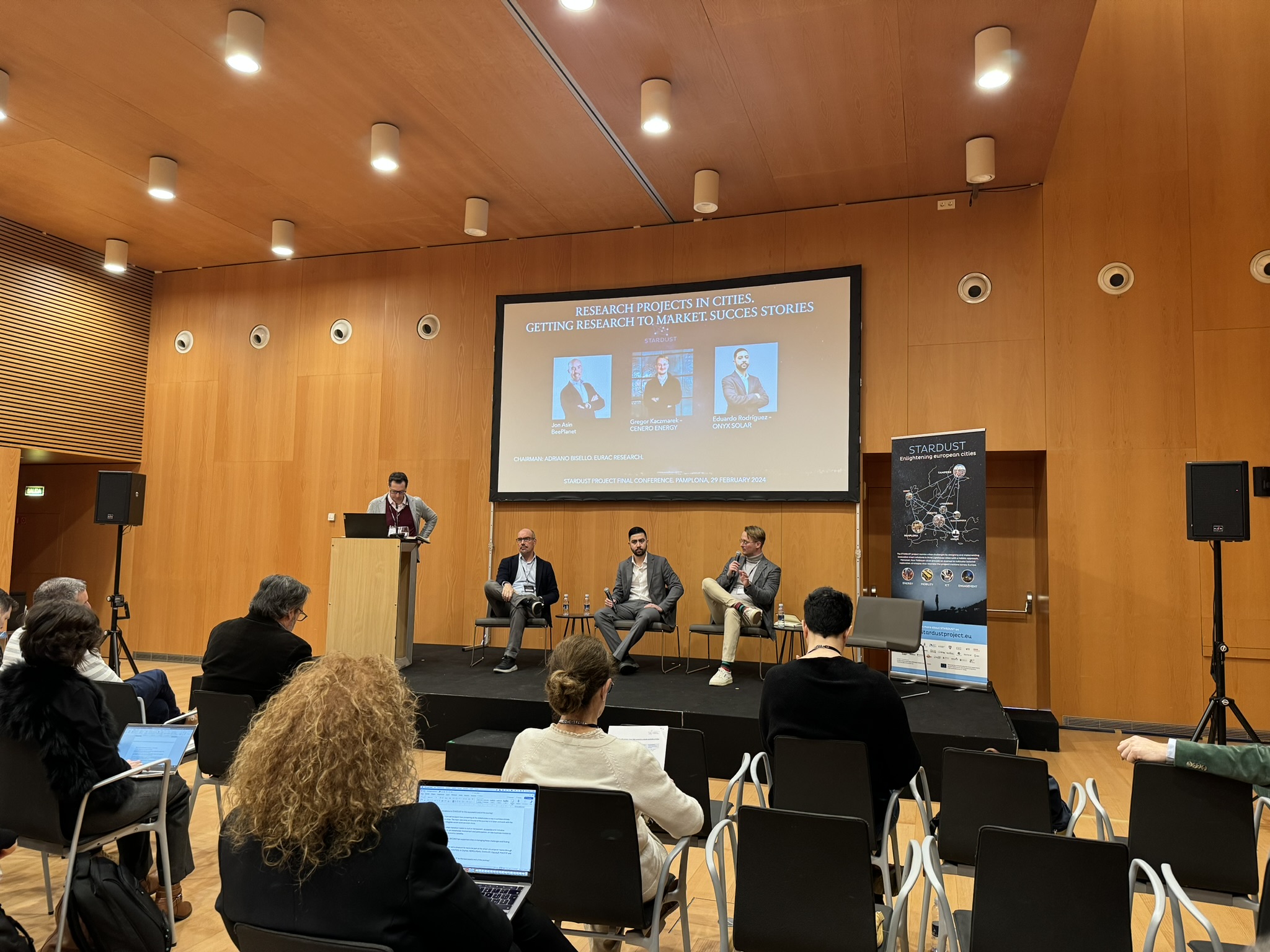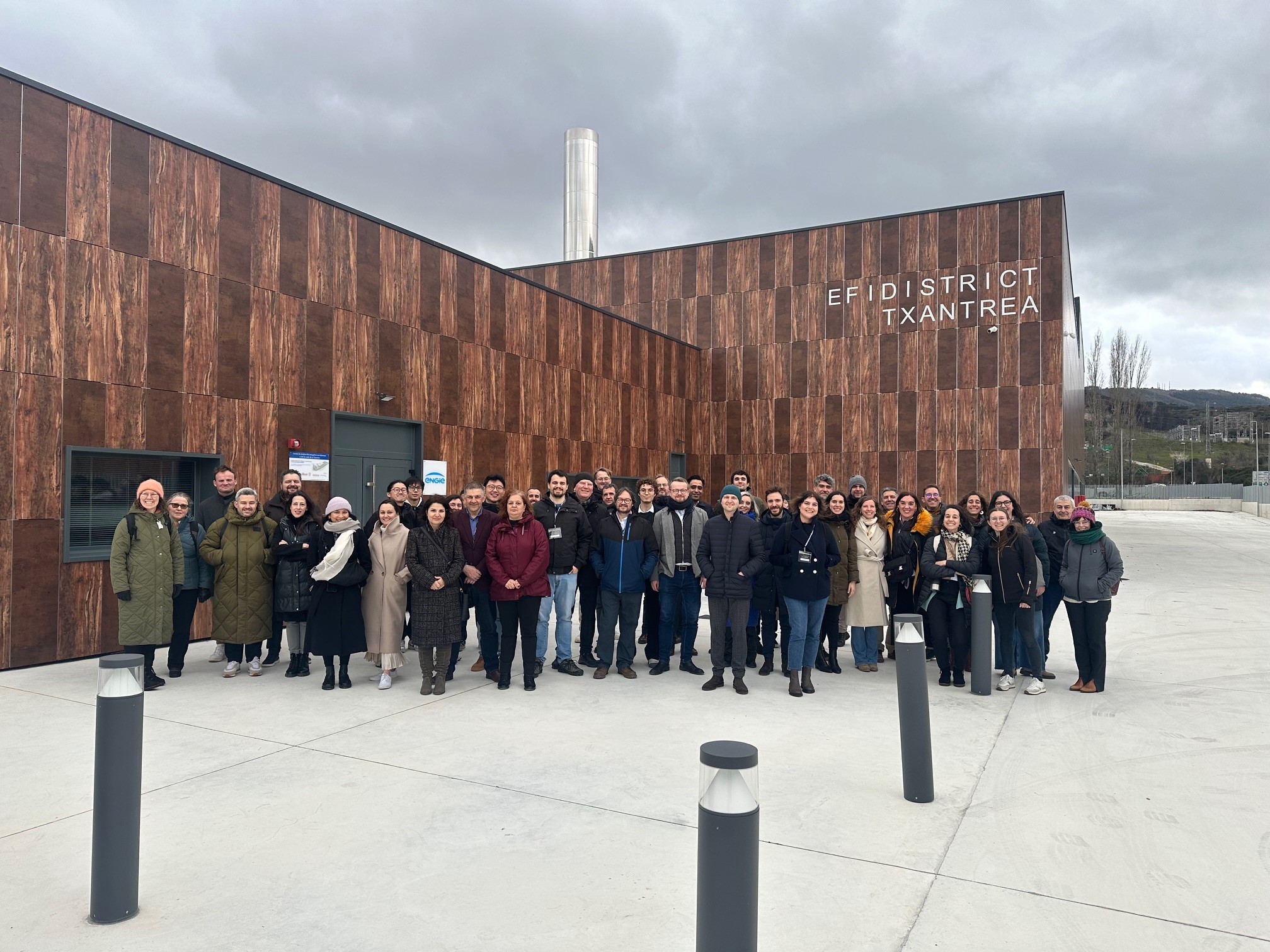SPARCS attends the STARDUST Final Event in Pamplona
The STARDUST project drew to a close in a two-day final conference held in Pamplona at the end of February. The event gathered delegates from across Europe, celebrating the accomplishments of a Smart Cities initiative that spanned six cities, each facing diverse challenges. Project Coordinator Florencio Manteca, reflecting on the project’s journey, remarked: “After all this time, and after many challenges that we have overcome, the consortium has a lot of knowledge to share.”
SPARCS partner Cenero participated as a guest speaker at the final event of the STARDUST Project. Gregor Kaczmarek, accompanied by Gerrit Baumann, had the opportunity to present their insights regarding their participation in the SPARCS project, shedding light on two pivotal themes that have shaped Cenero’s journey. The SPARCS Project: A Catalyst for Success and cenero.one: Guiding Startups Through ‘The Valley of Death’.
Cenero shared that SPARCS led them to explore every aspect, from business and markets to technical details and SDG alignment, providing deep insights beyond their usual focus.
Regular reporting initiated a robust self-review process, enabling early detection of errors and fostering continuous improvement. Beyond funding, SPARCS served as a platform for exposure, paving the way for collaborations and extensive networking, crucial for their growth.
Their journey to a successful startup, like cenero.one, involved strategic decisions and deep market research, blending innovation with familiarity to ease client transitions.
Seeking professional advice, including support from SPARCS, was crucial. The establishment of cenero.one showcases the success of thorough research and strategic innovation, supported by SPARCS.
SPARCS also made a notable impact at the conference, reinforcing the collaborative spirit within the Smart Cities network. Gretel Schaj from BABLE Smart Cities, a dedicated member of the SPARCS network, actively participated in a panel discussion, while David Škorňa from the fellow SPARCS city Kladno participated in various conference activities, including workshops and the Board of Coordinators established under the Scalable Cities initiative. The Board of Coordinators serves as an excellent platform for facilitating the seamless exchange of knowledge and promoting effective solutions to common problems.
The conference put the spotlight on the successes, challenges, and invaluable lessons learned from a project that navigated the complexities of a global pandemic and the energy market impacts of geopolitical events. In Tampere and Pamplona, nearly zero and low-carbon buildings now stand as symbols of successful urban renewal. The e-mobility pilots in the STARDUST lighthouse cities and in Cluj-Napoca have seamlessly integrated energy into public mobility and buildings. Additionally, innovative IoT-based city platforms and various ICT solutions for energy management were successfully implemented.
“The meeting in Pamplona started with an IEA Annex83 meeting on 26-27 February, bringing together PED researchers and experts. International research collaboration on Positive Energy Districts was planned and discussed, and work carried out so far was shared. The researchers discussed the data and impacts of PEDs, the definition of PEDs, and joint research publications, among other topics,” said Mari Hukkalainen from Finnish research institution VTT, who attended part of the conference online.
The second day of the conference shifted focus to the broader picture of climate neutrality. STARDUST Coordinator Florencio Manteca explained the rationale: “STARDUST is a research project for the development and implementation of smart technological solutions and business models. We wanted to open up the focus a little and deal in a more applied way with some issues that are fundamental in the face of our great environmental challenge in Europe, which is climate neutrality in 2050.”
The round tables during this session delved into the vision of the scientific community, challenges in implementing urban R&D projects, financial mechanisms for large-scale replication, and insights from cities selected in the Carbon Neutral Cities Mission 2030.



